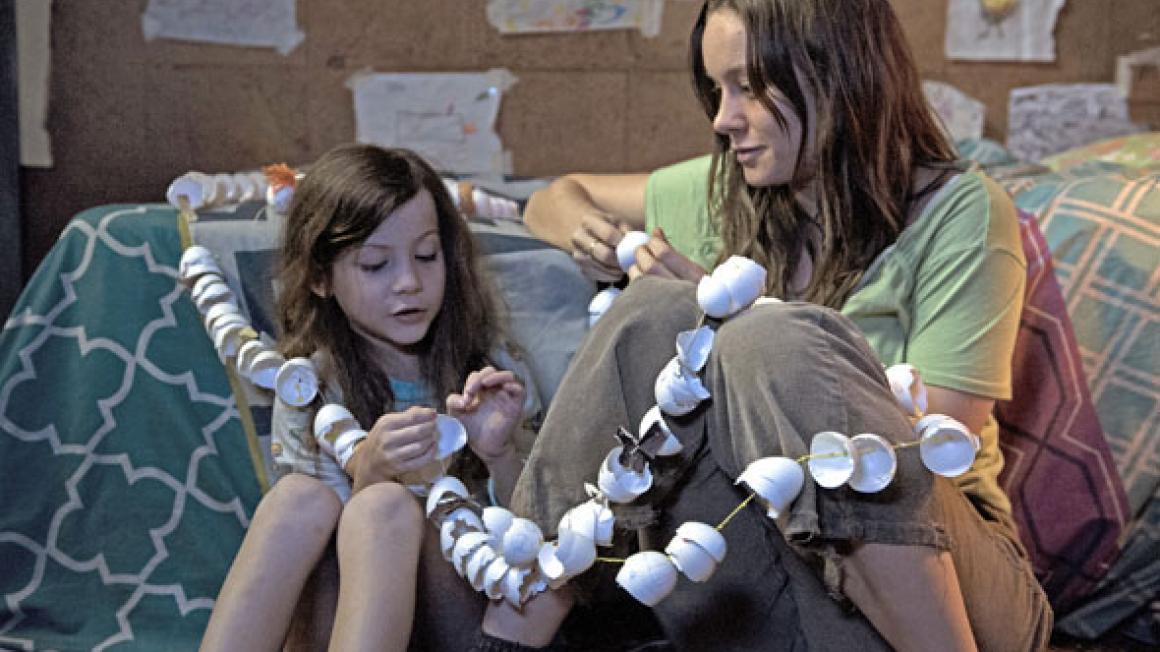Room
 Of all the major awards contenders this year, Room is my favourite. What a terrifying and tender film it is, the story of a mother and son kept in captivity, who develop their own language and their own world to cope with the horror of their environment. Room is a real survival story, and it doesn’t need epic landscapes to add grandeur.
Of all the major awards contenders this year, Room is my favourite. What a terrifying and tender film it is, the story of a mother and son kept in captivity, who develop their own language and their own world to cope with the horror of their environment. Room is a real survival story, and it doesn’t need epic landscapes to add grandeur. Brie Larson plays Joy Newsome, a kidnap victim imprisoned in a specially adapted garden shed where, we learn, she has given birth to a son, Jack, after repeated violation at the hands of her evil captor. There, mother and son have lived for five years and she has raised him to believe that this is the whole world, a world simply called Room, populated only by Table, Lamp, Bath, Spoon and Wardrobe.
The novel on which it is based, by Emma Donoghue, who now proves a skilful screenwriter (Oscar-nominated, indeed) in fearlessly adapting her own material, is told through the child’s voice but he and Ma share POV duties here. I think it works a treat – the boy’s voice would have become grating as a voiceover so instead we get to see Jacob Tremblay’s extraordinary performance from the outside, his little, light-starved body and that amazing tumble of hair (‘That’s where my strong is,’ he says.)
The book may belong to Jack, but the film is both of theirs and Brie Larson is quite brilliant, her performance perhaps helped by the Art of survival: Jack (Jacob Tremblay) and Ma (Brie Larson) fact that she’s somewhat unknown (or at least unrecognisable from the actress playing Amy Schumer’s sister in Trainwreck, or from her turn in comedy 21 Jump Street). She transmits all the frazzled fatigue of a mother yet also the steely invention that kicks in as natural protection. Her love fills Room.
As does her grim, animalistic determination to survive and protect. The captor, a schlub they’ve dubbed ‘old Nick’, visits most nights but she keeps Jack hidden in Wardrobe and submits to sexual degradations to distract old Nick from Jack, who is, after all, his son. Not that he seems to care much about that.
Yet we can always see Joy’s eyes searching for a way out. Larson’s face transmits all of this, thoughts and moods flashing across it and yet it’s a tremendously physical performance too, one that utterly inhabits the torment her character has been through.
When escape comes, it thrills like nothing else. Director Lenny Abrahamson – an Irish film-maker with some good but little-seen films on his CV such as the black comedy Adam & Paul and the tragic What Richard Did – handles it superbly, so well that my stomach churned and knotted and my heart felt stuck in my mouth, almost choking me when the police lady tries to piece things together under the mounting crescendos of Stephen Rennicks’s score.
And then there’s more, another change of tone, the aftermath, about dealing with the real world, which, horrifyingly, isn’t necessarily any better than captivity for distraught Joy and especially for little Jack, who kind of loved things in Room where he had Ma to himself. Sometimes, Jack will say something that breaks your heart with its simplicity, with its logic – a brilliantly conceived phrase here and there that takes you right back into the tortured yet dreamlike mental space of Room itself, where baby innocence challenged brutal experience every second of every dark day.
But I don’t want to spoil the rhythms, surprises and the twisting textures of this film for anyone – even people who have read the book will find themselves wrong-footed, their emotions given a right buffeting through the storm of this beautifully pitched film about love in all its teary, snotty, gutsy glory.


